How to Kill Mold and Mildew (and Prevent It From Coming Back)
Stop harmful fungi from taking over your home with simple steps for removal and prevention.
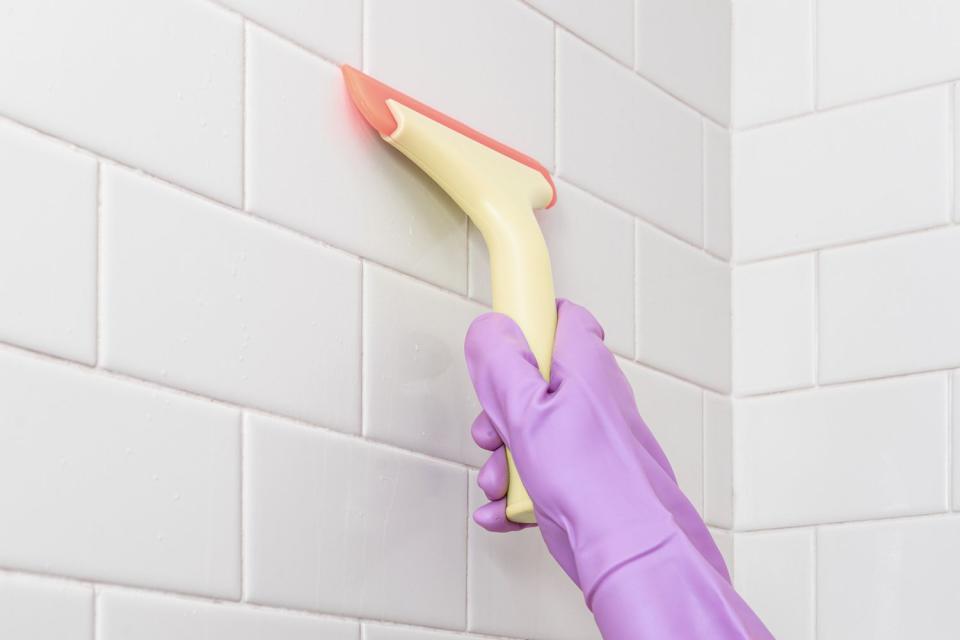
BHG / Laura Wheatley
Mold and mildew are types of fungi that can quickly grow anywhere you find moisture. There is very little difference between the two; in fact, mildew is just mold in its early stage. Both serve an important purpose in our environment by helping to destroy organic materials such as leaves, which enriches the soil. But some mold and mildew isn't as helpful for humans. Living in a moldy home can cause serious health issues like headaches, respiratory problems, sinus congestion, and eye, nose, or throat irritation. It's especially dangerous for infants, children, pregnant women, elderly individuals, and people with existing respiratory conditions, who are at a higher risk for these problems.
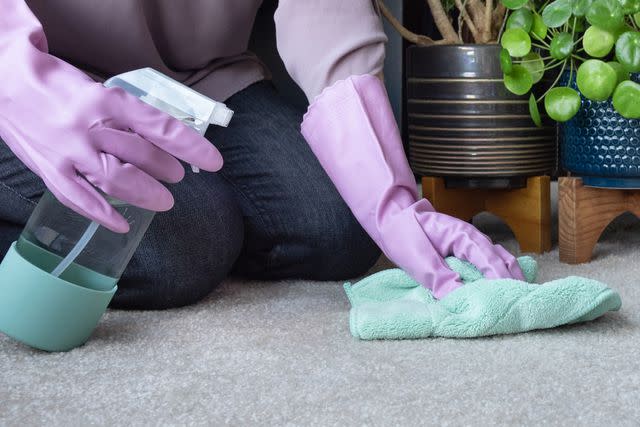
BHG / Laura Wheatley
Before Getting Started
To check your home for mold and mildew, start with areas where there could be high humidity or water damage, such as a damp basement or crawl space. Mildew and mold can grow on a wide range of household surfaces, including wood products, ceiling tiles, cardboard, wallpaper, carpets, drywall, fabric, plants, foods, and insulation. These growths can develop on a damp surface within 24 and 48 hours and produce spores that travel through the air. They could break down and destroy whatever they grow on and can cause mild to severe health problems for you and your family.
How to Kill Mold and Mildew
The problem of mold and mildew won't go away on its own. Use these simple cleaning tips to remove and prevent mold and mildew in your home.
How to Clean Mold and Mildew from Outdoor Fabric
What You Need
Chlorine bleach (optional)
Hot water
Oxygen bleach
Vacuum cleaner
Ammonia
Cool water
White cloth
Fan or hair dryer
Step 1: Move Upholstered Pieces Outside
Avoid sending mold spores into the air and throughout the house by first taking fabric and upholstery outside when possible. Brush off as much of the mildew as possible.
Step 2: Soak and Launder Fabric
The moldy or mildewy fabric should be laundered in chlorine bleach and hot water. If chlorine bleach is not a safe option for the material, soak it in oxygen bleach and hot water for a half-hour, then wash as directed.
Step 3: Dry Fabric
Take laundered fabric outside to dry in the sun if possible.
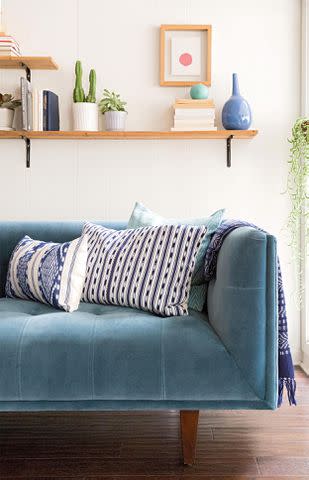
How to Clean Mold and Mildew from Indoor Fabric
Some items might not be able to be moved outside. Follow these steps to clean upholstered items indoors.
What You Need
Vacuum
Ammonia
White cloth
Fan or hair dryer
Step 1: Vacuum Upholstery
Upholstery that you can't take outside should be vacuumed first. Replace the vacuum bag or take the canister outside to clean.
Step 2: Clean with Ammonia Solution
Mix one cup of ammonia with one cup of cool water. (Chlorine bleach and ammonia should never be combined due to the resulting toxic fumes.) Using a clean, white cloth, sponge the stains with the ammonia solution. Blot until all the liquid is absorbed. Repeat the process until the stain disappears.
Step 3: Blot and Dry
To remove the resulting ammonia solution, sponge the area with cold water and blot. Dry thoroughly with a fan or hair dryer set on cool.
How to Clean Mildew-Stained Carpets
Get carpets fresh and clean by following these steps.
What You Need
Vacuum
Liquid laundry soap
Damp cloth
Dry cloth
Step 1: Vacuum
Thoroughly vacuum the affected carpet to remove as much of the mildew as you can. After you are done, either throw away the bag or clean the canister outside.
Step 2: Apply Cleaning Solution and Dry
Briskly mix 1 Tbsp. of liquid laundry soap and 2 cups of cool water. Apply the suds to the stained area with a damp cloth, sponging lightly. Repeat until the stain is gone, then rinse. Dry the area completely.
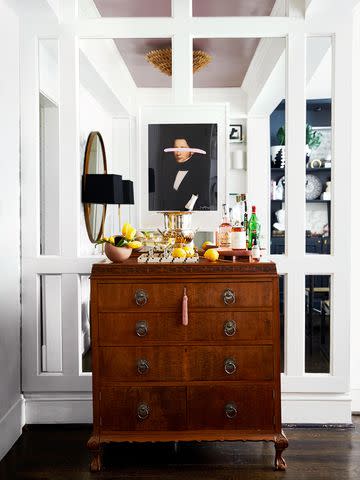
How to Remove Mildew from Wood Furniture
If your wood furniture has seen better days, it might be time for a deep clean. Follow these tips for removing mildew from wood furniture.
What You Need
Vacuum
Clean, dry cloth
Damp cloth
Furniture polish
Step 1: Vacuum Furniture
Vacuum mildewed wood furniture with a soft brush to remove any loose spores. After you are done, either throw away the bag or clean the canister outside.
Step 2: Wipe and Polish
Quickly wipe off any stains using a light touch. Rinse the area with a damp cloth, let dry, then polish.
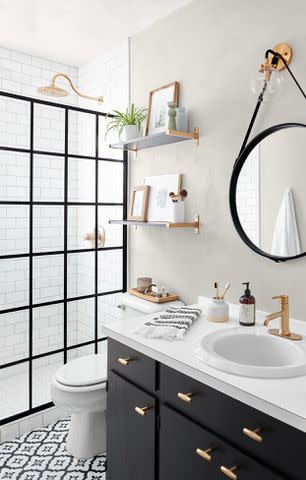
How to Clean a Mildewed Shower Curtain
If you're dealing with a mildewed shower curtain made of durable fabric, follow these steps for cleaning it.
What You Need
Liquid disinfectant
Hot water
Lemon juice
Salt
Detergent
Color-safe bleach or regular bleach
Step 1: Wash and Rinse
Wash with a solution of 1/2 cup liquid disinfectant and one gallon of hot water. Rinse with a mixture of one cup of lemon juice and one cup of salt to a gallon of hot water. Wash with detergent and bleach. Rinse with water.
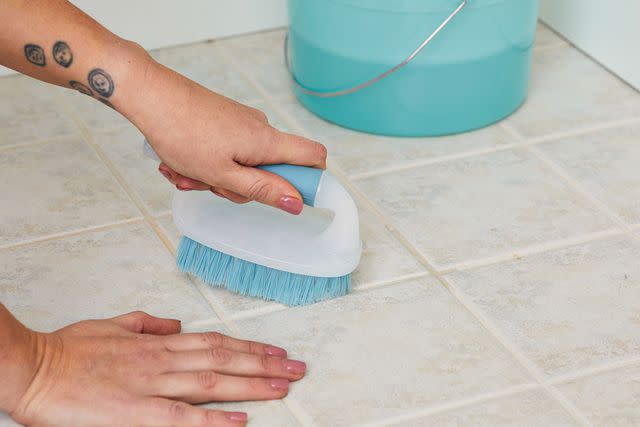
How to Prevent Mold and Mildew in the Bathroom
Few rooms in the home see as much moisture and humidity as the bathroom. The first step to preventing mold and mildew is making sure your bathroom stays well-ventilated. An exhaust fan will help circulate the air and remove moisture more quickly. These additional actions will help keep your bathroom fresh and mold-free.
Spread towels out after use so that they dry more quickly.
Minimize containers left in the shower for cleaning ease and better circulation.
Wipe down the shower with a clean towel or squeegee after its last daily use.
Choose shower curtains that dry and clean easily to help avoid soap residue, which fosters mold.
How to Prevent Mold and Mildew Throughout the House
Help keep your home free of mold and mildew with a few preventive measures.
Use dehumidifiers, fans, and open windows to help reduce the moisture in your home. Be especially vigilant during hot, humid months.
Fix plumbing leaks as soon as possible.
Do what you can to prevent rainwater from seeping into your home. Check potential problem areas regularly.
Clean the fabrics in your home routinely and keep them dry.
Store items in dry, well-ventilated areas.
When to Toss Mold- and Mildew-Infested Items
If the mold and mildew on your fabric, upholstery, carpet, or furniture is beyond cleaning and drying, throw the item away or call a professional cleaning service. Don't take a chance with the potential health risks that mold and mildew can cause you and your family.
false

